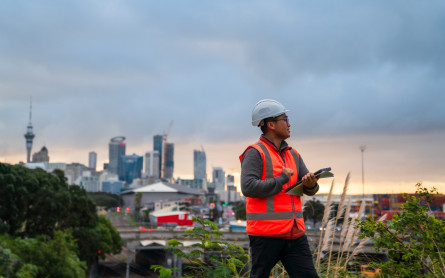
29 February 2024
Reading time: 8 minutes
Posted by Tom Hartmann,
1 comment

Building up a million dollars for retirement is simpler than we think. Start soon enough, and it doesn't require a six-figure job or a hefty inheritance.
The challenge is that thinking about retirement typically sits at the bottom of the priority list for young adults, at the very time when the most impact can be made. Travel, careers, weddings and babies feel more important, and who wants to spend this exciting time of your life thinking about the future?
We tend to take a ‘she’ll be right’ attitude, assuming our retirement years will work themselves out and we’ll be set up for a comfortable, if not slightly luxurious, life after finishing work.
Unfortunately, we’re seeing more and more that this is not always the case. Research has shown people increasingly are struggling to get by in retirement as homeownership rates drop and the cost of living edges further up.
The good news is making some key decisions in your twenties can set you up for a comfortable retirement – where you can do the things you love and put your feet up after years of hard work.
If you’re twenty something, you’ll be shocked at the potential impact of the money decisions you make now.
Over long periods of time, the money that is invested will start making money for you through compound interest, helping you to reach your goals without any extra effort. Compound interest is when you earn interest on both the money you’ve saved and the interest it earns.
Studies have shown that building good saving habits can have more of an impact on financial wellbeing than income, so making these decisions early could be even more influential than what you choose for your career.
Here’s how to make your money work harder for your future self.
KiwiSaver is a gamechanger when it comes to building wealth for retirement. Your contribution rate can have a massive impact on the life you get to live once you turn 65.
The average KiwiSaver balance in New Zealand is currently around $30,000, but this is expected to grow significantly among younger generations who opened accounts with their first job.
Let’s say you are 25 and earning $60,000 a year. The Sorted KiwiSaver calculator will show you that if you contribute 6% to a growth fund until you turn 65, you can expect to see around a million dollars in your account then. That will be worth around $450,000 in today's money.
This is compared to the $290,000 you’d have if you stick with the compulsory 3%. It requires you to sacrifice a bit more pay each week (around $35 more), but your nest egg will be around 160k larger come retirement. Whether that’s a nice boat, a holiday or simply some peace of mind, it seems like a decent trade off, right?
Investments are a long-term game – investing wisely and sticking with your plan is key for success.
New Zealanders have historically been big fans of property investment. Whether it’s the family home, a rental property or a bach, we love to be able to see and touch our investments.
But that’s not to say property is necessarily the only (or best) option. Share investing has also become more popular over recent years, and for good reason. It’s much easier to spread your risk and less work than owning a house.
DIY platforms such as Sharesies, Hatch, InvestNow or Kernel have done a good job of lowering the barriers to getting started investing. You no longer need steep amounts of money just to begin.
If you start investing $50 a week today, the Sorted savings calculator shows us that in 40 years you could expect to have around $540,000 (assuming you’re in a growth fund and getting returns of around 7% annually).
The incredible part – only around $83,000 of that would actually be your savings – the other $477,000 would be from investment returns.
The challenge here is sticking to your plan over the long term, even when the share market goes up and down. Don’t expect them to grow the same amount every year. The sharemarket can be volatile, so expect to have moments when you wonder if it’s worth it. But don’t panic – trust the process! If you sell your shares when the market is down, you will only lock in your losses.
Similar goes for property – it can be a great investment, although you’ll need a significant deposit to get on the ladder. Over the past 20 years (2004-2024), house prices in Auckland have grown by an average of 5.91% per year (REINZ). This means if you bought a $300,000 house 20 years ago, it could be worth around $945,000 now.
What you choose to invest in will depend on how much money you have, what risks you’re prepared to take, and when you’ll need access to the money again.
It’s really important to know your purpose. In short: be really clear and realistic about what you want to achieve, and know the timeframe that you want to invest for.
To build wealth over the long term, it’s critical that we protect what’s important – the people in our lives, our money now and in the future, and what we own.
It’s all well and good to have investments and savings, but if we’re forced to drain them for an emergency, it’s back to square one. Having the right protections in place keeps your money safe.
When considering what insurance or protections you might need, consider what you own (house, contents, car), your health, your life and your travels.
It will be up to you to decide what is or isn’t worth protecting. We need to weigh up the risks of not having insurance against the costs of buying it. Ask yourself these four questions:
Helping to answer these questions is where an insurance adviser really earns their keep. With the right protections in place, you can save and invest confidently knowing you’ve minimised the risk of your wealth being wiped out by an unexpected event.
Health issues, divorce, redundancy, car accidents... We hear about these things happening every day, but never expect them to happen to us.
While you may be one of the lucky ones, unfortunately statistics show it is likely that one of these things will happen to you in your lifetime. So it pays to be prepared.
Saving some money in an emergency fund means you have a buffer to stop you digging into your savings when an unexpected expense comes up.
A good number to begin with is $1,000. This is a great start and provides a safety net for small expenses that might come up. Over time, try to work towards three months’ worth of expenses.
This will protect you in case you’re unable to work for a while, as well as providing a good stash of money that could help cover unexpected costs.
It’s no secret that retirement is hard to visualise when you're in your twenties. You have your whole life ahead of you and are probably just starting your career, so imagining the day you’ll hang up your boots can be a little scary.
But it’s these simple steps you can take now that could have the most power in your future.
Try to think of this as exciting rather than scary. Any money you put away in your 20s or 30s will have much longer to grow and compound, meaning you can essentially work less hard to achieve the life you want.
For motivation, setting goals can make all the difference. How does a European holiday sound, or a lifestyle property in the country? Maybe you’d like an early retirement, or the option to ditch the day job and start your own passion project?
Mapping out our goals helps us to visualise our future and make it feel real. We start to feel excited for the things we could achieve, and then feel motivated.
I know it seems a long way off, but ask anyone who's retired. They will say to start building up your first million as soon as you can!
This blog was originally published by Stuff.
Use verification code from your authenticator app. How to use authenticator apps.
Don't have an account? Sign up
Or log in with our social media platforms


A free account gives you your very own space where you can save your tools and track your progress as you get ahead.
Or sign up using Google:


Comments (1)
Comments
16 May 24
mmmmkayy
yapping
No one has commented on this page yet.
RSS feed for comments on this page | RSS feed for all comments